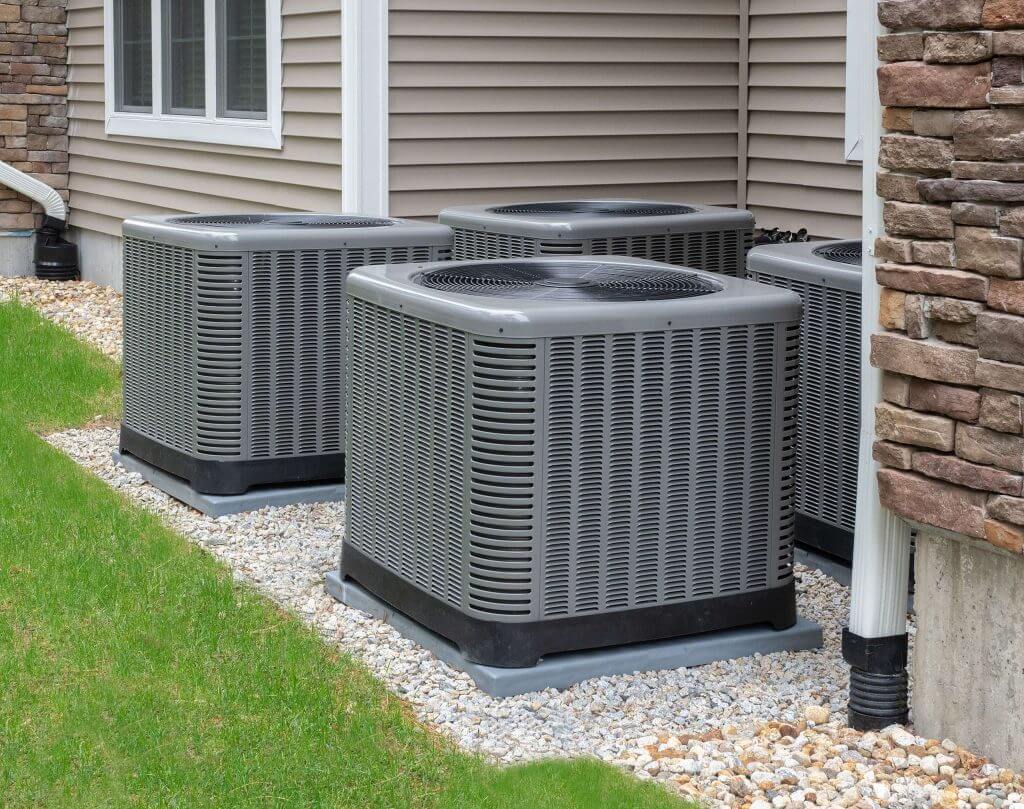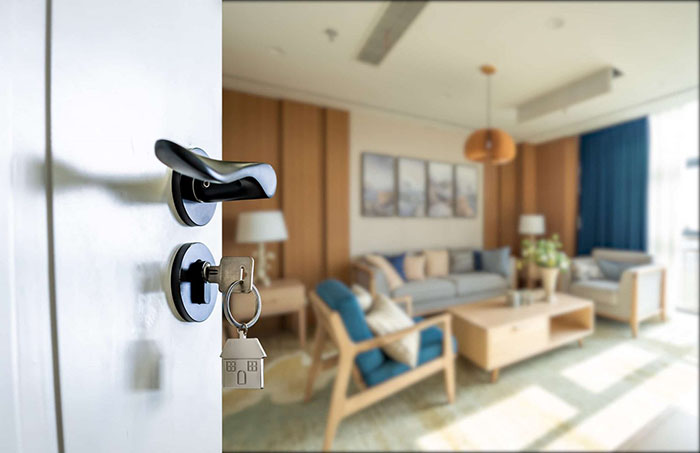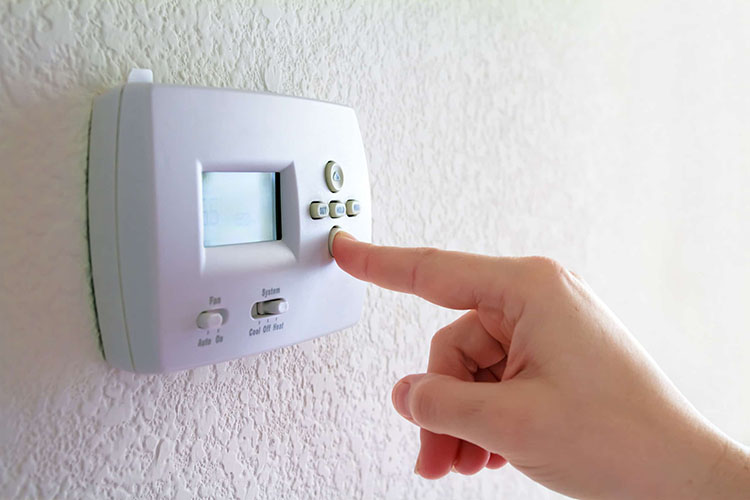What Temperature To Keep The House At Night In Arizona
The temperature of a home in Arizona at night can drastically affect its inhabitants. It is important to understand what the ideal temperatures for comfort and energy efficiency are, especially during the summer months.
The information provided will include considerations such as humidity levels and personal preferences which must be taken into account when deciding upon the optimal house temperature.
Lastly, advice on how to best ensure the continued effectiveness of air conditioning units throughout hot seasons will also be discussed.

Climate Considerations In Arizona
Arizona experiences extreme weather conditions due to its desert climate. Temperatures can reach up to 115°F in the summer months and overnight lows drop as low as 40°F during winter. This large range of temperatures makes it difficult for the inhabitants of Arizona to decide what temperature to keep their house at night.
The amount of insulation a home has will make an impact on how warm or cool the interior stays, regardless of outdoor temperatures. In addition, usage of air conditioning and heating systems should be taken into account when determining the ideal nighttime temperature.
Depending on individual preferences, some people may prefer to have cooler nights while others may like warmer evenings; both options are possible if efficient HVAC systems are used.
Heat Sources In The Home
Heating in the home can be achieved through a variety of sources. One common heat source is an air conditioner and heating unit. This type of system utilizes a compressor to cool air during warm months, while providing hot air during colder weather.
Another option is space heaters which are typically used when additional warmth is needed in specific rooms or areas of the house. These are powered by electricity, gas, or oil. Fireplaces also provide supplemental heat but must be managed properly for safety reasons. Insulation plays an important role as well because it reduces energy costs by trapping heated air indoors.
Properly installed window treatments such as shades, curtains, and blinds help prevent drafts from entering the home and act as a layer of insulation against outdoor temperatures. In Arizona specifically, night-time temperatures can dip below freezing so these precautions should be taken into account before bedtime.
Impact Of Insulation And Ventilation
Insulation and ventilation are two components that contribute to the thermal comfort of a home in Arizona. Insulation helps reduce heat transfer from outside, while ventilation increases airflow within the house, providing additional cooling.
To maximize efficiency, insulation should be installed underneath floorboards and around windows and doors. Additionally, installing louvers or other forms of openable vents allows fresh air to enter the space during cooler nighttime months. In regions with harsh summers such as Arizona, proper insulation can help maintain a comfortable temperature even during peak hours of sunlight.
Ventilation is also important for maintaining optimal indoor temperatures since it provides an exchange of hot inside air with cooler outdoor air. This helps combat humidity levels which can cause discomfort in Arizona’s climate. Installing exhaust fans near wet areas such as bathrooms and kitchens will help eliminate moisture-laden warm air before it enters living spaces throughout the house.
A well-ventilated area will not only provide thermal comfort but also improve overall indoor air quality by introducing fresh air into the home environment.

Energy Efficiency Practices
Insulation and ventilation are essential for energy efficiency in a home. With the proper insulation, it becomes possible to maintain comfortable temperatures inside the house regardless of outside conditions.
In Arizona, where summer months can be especially hot, this is an important consideration when determining what temperature to keep the house at night.
In order to maximize energy efficiency while keeping indoor temperatures comfortable during warm weather, homeowners should consider setting their thermostats between 72-78 degrees Fahrenheit (22-26 Celsius). This range allows them to save on cooling costs without sacrificing comfort.
Additionally, using ceiling fans or other air circulation methods helps move cool air around the room and keeps occupants cooler overall. Setting window blinds or curtains so that they block out direct sunlight also helps reduce heat build-up within rooms.
By following these simple practices and maintaining a reasonable nighttime temperature, Arizonans can stay comfortable while saving money on their power bill.
Recommended Temperature Settings
When setting the temperature for a home in Arizona at night, it is recommended to keep the house around 70°F. During warm summer months, temperatures can reach as high as 110°F during the day and remain hot into the evening.
To reduce energy costs while still maintaining comfort levels, keeping the thermostat set between 68-70°F will be sufficient. Additionally, if necessary, utilizing ceiling fans or other cooling methods can help lower the internal temperature of a room without having to set an extreme temperature on your heating and cooling system.
Setting a cooler temperature than suggested here could lead to excess energy usage and higher electricity bills. On top of that, cold air may not circulate properly throughout the living space due to insufficient ventilation systems.
Therefore, sticking with a temperature close to 70°F should provide comfortable conditions for occupants while reducing overall energy expenditure.
Health Concerns To Consider
In Arizona, due to hot temperatures during the day, it is important to consider health concerns when setting house temperature at night. Excessive heat can lead to dehydration and increase risk of heat-related illnesses such as heat exhaustion or stroke.
Additionally, excessively cold temperatures may cause discomfort, increased energy costs, and could even result in hypothermia. Therefore, a moderate temperature between 65-72 degrees Fahrenheit is recommended for comfort and safety at night.
It is also important to pay attention to other environmental factors that could influence the overall indoor climate. Poor air circulation caused by blocked vents or dirty filters will reduce air quality and prevent proper cooling throughout the home.
Furthermore, open windows will allow cool air from outside to enter but could introduce allergens into the space leading to respiratory problems if not regularly cleaned. Taking these considerations into account when adjusting nighttime thermostat settings can help keep occupants safe and comfortable in Arizona’s warm environment without sacrificing personal health or financial stability.

Adjusting For Seasonal Changes
In Arizona, the temperature of a home at night should be adjusted for seasonal changes. During summer months, cooler temperatures are recommended in order to keep homes comfortable during hot evenings.
A good starting point is around 72 degrees Fahrenheit (22°C). This can help offset the rising outdoor temperatures and high humidity levels that characterize summer nights in the state.
Winter presents an entirely different set of conditions, with colder overnight temperatures and low humidity levels. To keep warm on winter nights, it is best to maintain indoor temperatures between 68-70°F (20-21°C). This will ensure optimal comfort and energy efficiency by reducing any need for additional heating sources such as electric heaters or fireplaces.







